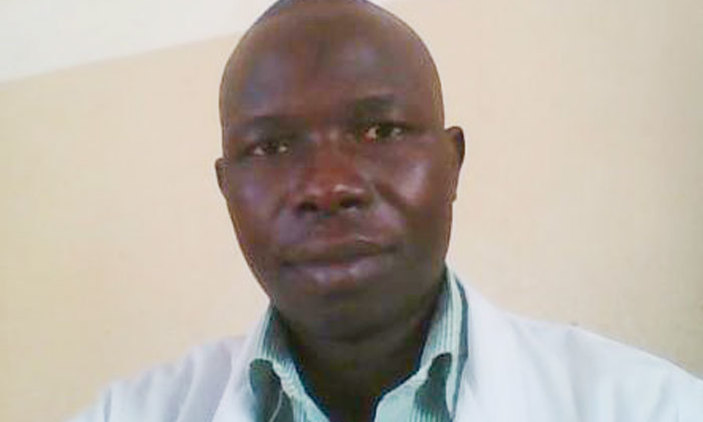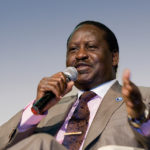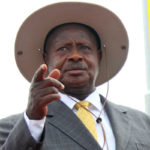By Dr. Adiga W. Anzo
Ugandans are looking forward to a middle income status by 2020 and to achieve and sustain this goal, the Medical fraternity needs to ensure that collectively we provide the best health care to Ugandans as a crucial contribution towards sustainable economic development.
As a concerned citizen I wish to acknowledge the tremendous effort put by the government of Uganda in trying to make healthcare accessible and affordable to the population of Uganda. The construction and renovation of hospitals countrywide is testimony for even the ‘blind’ man to see and the ‘deaf’ to hear.
However, I believe that the Uganda Medical Association who, since its formation in 1964, has been denied the opportunity for contributing towards health policies. Yet it is the Uganda Medical Association that has propelled the image of Ugandan doctors globally, including the late Dr Margaret Mungherera as President World Medical Association. Other international leaders in the medical profession include Prof. Francis Omaswa, Dr. Patrick Kadama, Dr Edward Kanyesigye and Dr Peter Eriki who have impacted international health workforce policies; Dr Richard Idro, Prof. Pauline Byakika, Prof. Musisi, Dr Sabrina Kitaka, Prof Sarah Kiguli, Prof. James Tuwmine, Prof Florence Mirembe, Prof. Elly Katabira, Prof. Moses Kamya, Prof Nelson Sewankambo all of who have made ground breaking contributions in the area of global health (AIDS, Tuberculosis, Malaria, Nodding Disease, Ebola). Many more super stars are out there ready to make game changer interventions and strategies to tremendously improve the health sector as non-state actors.
Indeed we think this is the right time that as Doctors, we sat on round table and formulate real solutions to poor health services delivery in Uganda; African solutions for African problems. As a build up to middle income status, there are several key decisions which if well taken care off will accelerate our sustainable economic development. Conceptually, there are 6 building blocks for health systems strengthening according to World Health Organisation. Thus improving service delivery; health financing (insurance, cost sharing); human resource for health; access to medicines, vaccines and medical technologies; information use and management; and effective healthcare leadership. It is in this area of leadership that the Uganda Medical Association can make ground breaking contributions focusing on human resource for health and access to medicine and supplies.
It is not news to Ugandans that there is rampant stock out of live saving medical supplies and drugs to enable effective service delivery for the populace. I do agree that there is some degree of theft of drugs, which is being reported by Health Monitoring Unit of State House. However it should be brought to our attention that the leading hindrance to Emergency Medical and Surgical is lack of medical supplies. Frankly, this scenario traumatizes the health caregiver to see a Ugandans “life going”, while they cannot do much to save it. Personally I experience this trauma more often than not, ranging from seeing someone’s uterus (womb) rapture awaiting the relatives to buy supplies like sutures or fluids. Although it is good to have free access to healthcare, such free medical supplies should match the demand on ground which not the case in Uganda.
We propose the government increases supply of emergency essential medicines and supplies required for such intervention to save the life of Ugandans. The adequate medical supply should have good accountability and monitoring to avoid theft and reckless use. As the Uganda Medical Association, we are ready to provide a well-researched, effective and professional corroborative measure to counter pilferage of medicines and supplies.
Another bitter but truth is the healthcare demand of Ugandans is higher than what government can provide without sharing the costs especially for the non-emergency medical conditions. It would be wise to reserve the current supplies for emergency interventions while for elective or non-emergency interventions their purchasing should be cost shared transparently according to the Ministry of Health recommended rate or price list. This strategy would ensure the emergency reserve is not depleted, and Ugandans would be aware of what to expect and demand of for it since community participation is inherently democratic. Ugandan would be prepared that if I go for non-emergency conditions, I have to cost share and demand a receipt for it. This will also eliminate the wrong elements that ask for “under the table” payments or extortion as is happening now.
The Government has continued to neglect its health workforce to the detriment of the service delivery. While the Ugandan health workforce has increased to 78% of the establishment in government hospitals (as per health sector performance report), they are few, demoralized and ill equipped. Apart from going through a strenuous, long periods or difficult training, the Ugandan health workers are not well placed to save the life of Ugandans due to poor equipment and supplies leave alone other motivation like housing and working environment. Yet young Medics have trained for 6 years with some paying tuition fees of over 70 million shillings in private universities. Among the game changer approaches for Uganda are the following:
Implementation of duty facilitation allowances for which the Uganda Medical Association petitioned Parliament in 2016. These well-researched incentives are to facilitate doctors to work for long working hours, weekends and public holidays as well as high-risk engagements such as Ebola epidemic control. The justification lies in the value of the lifesaving work the normal 8 hours of the Public Service standing orders do not apply.
The effective non-monetary incentives tax exemption for cars and construction materials for medics. Medics spend most of their lives in health facilities, and the few who use vehicles use this for taking care of patients including hurrying for emergencies. Today housing for workers is a problem after government sold its property in hospitals. However, mechanisms must be put in place to mitigate fraud and abuse of such a privilege.
Affordable housing for medical workers can ensure medics stay near health facilities during their working years that will make absenteeism a history. VAT exemptions for Medical Workers to allow construction of affordable houses just like for the armed forces.
Postgraduate training of future Doctors is marred with numerous challenges of quality, avoidable hardship such as housing, remuneration and practical supervision. Regularizing Senior House Officers whom the President described as “Modern day slaves” and Medical Internship within the public service standing orders will solve many of the operational problems in training these medics. The need for specialized health care in Uganda is growing exponentially, and the stopgap measure has been to export Ugandans to India, South Africa and the UK. Indeed it makes business sense for government to invest in Specialist medics. An effective policy is urgently needed with full involvement of important stakeholders like Ministry of Health, Uganda Medical Association, Pharmaceutical Society of Uganda and Nurses and Midwives Union.
The writer is the Chair Uganda Medical Association (West Nile Branch)
Email: anzoism2008@gmail.com.







